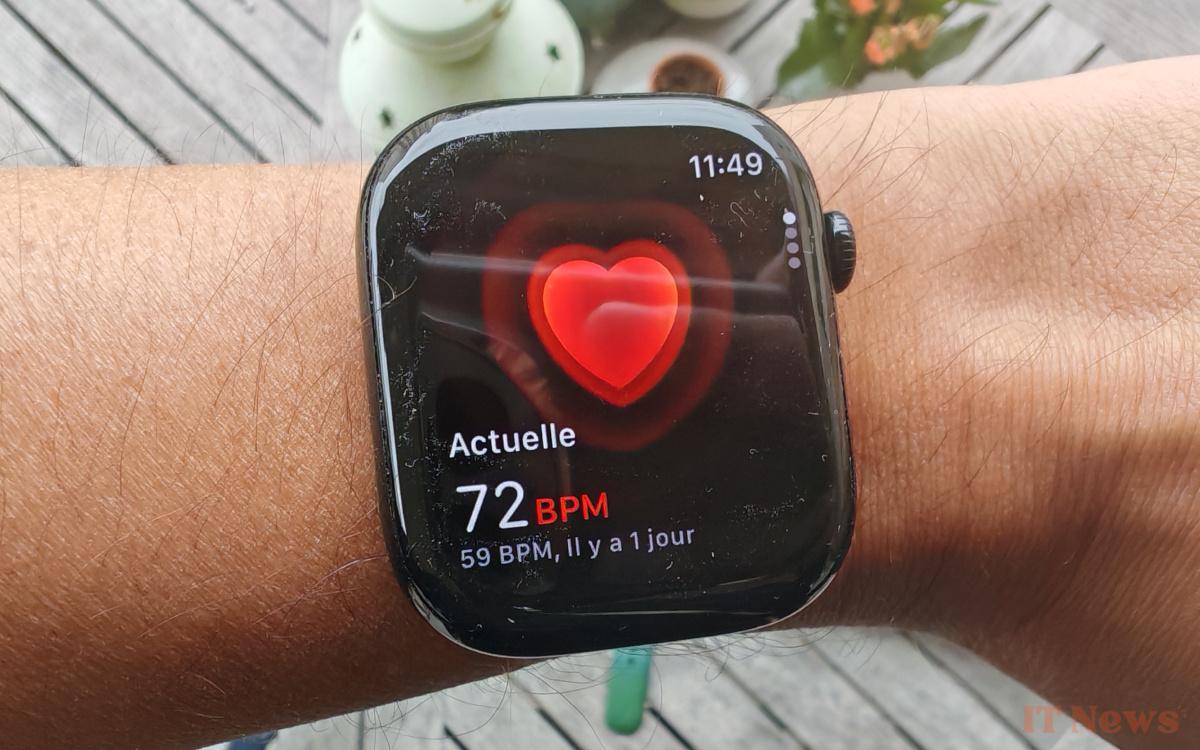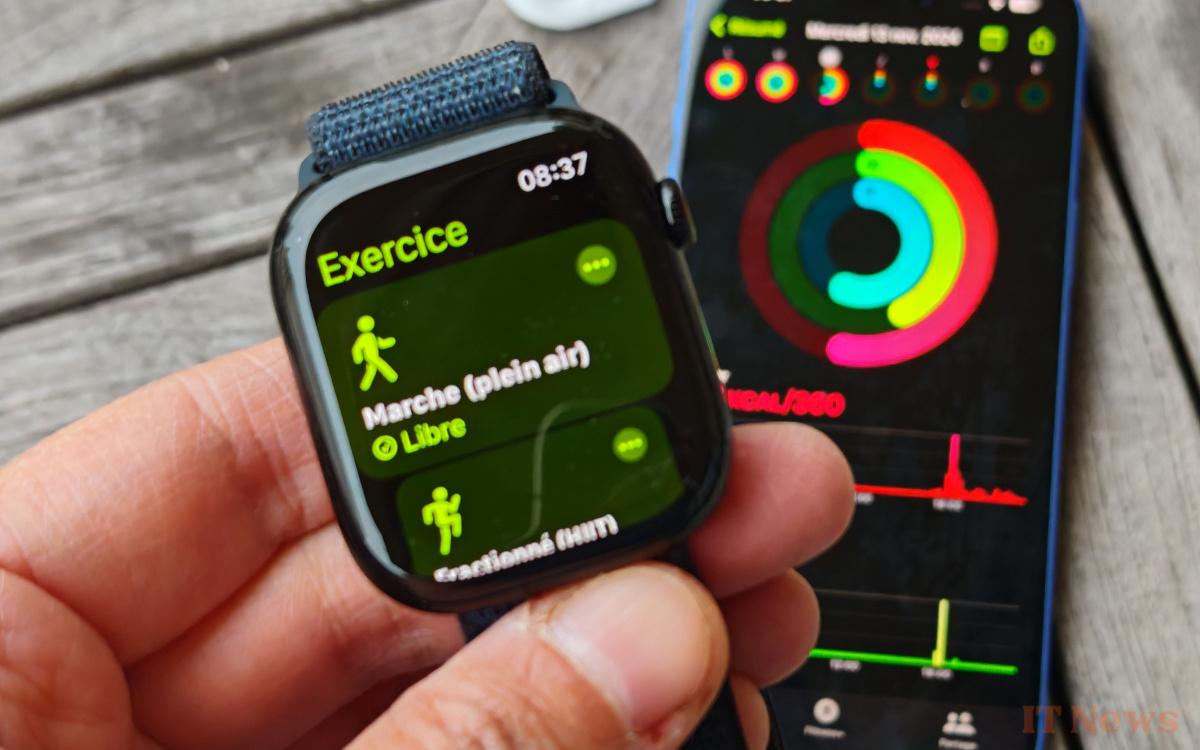By pooling data from dozens of studies on the accuracy of Apple Watch measurements, researchers reveal whether or not we should trust the health information provided by the smartwatch. It depends on the type of data, but also on the smartwatch model.
The Apple Watch has established itself as a must-have tech accessory thanks to its health and sports activity tracking features. But how reliable are the data measured by the smartwatch? A meta-analysis dissecting the results of 56 studies was conducted by the University of Mississippi to judge the product's accuracy. You'll finally know if you should take the numbers displayed by your Apple Watch seriously.
Let's start with some good news: the results showed that Apple Watches are generally accurate at measuring heart rate and step count. The set of studies shows average absolute errors of 4.43% for heart rate and 8.17% for step count. Below 10%, the discrepancy between what is measured and reality is considered small, and therefore the data provided by the device can be trusted.
Calorie expenditure measurement is inaccurate
On the other hand, if you were using your Apple Watch to measure your energy expenditure and adapt your diet based on the calorie loss indicated by the smartwatch, you can stop: the error rate in this case climbs to 27.96%, which means that you absolutely cannot rely on the Apple Watch for this metric. “This inaccuracy was observed across all types of users and activities tested, including walking, running, cycling, and mixed-intensity training,” the report adds.
The researchers say that the Apple Watch is a good support tool in certain situations, but that they should not be used as a substitute for clinical solutions or medical judgment. “These devices are great for tracking habits and staying motivated. But don’t take all the numbers at face value, especially calories. Think of them as a practical guide, not a diagnostic tool. It’s useful, but imperfect,” says Minsoo Kang, a professor at the University of Mississippi who led the study.
Ju-Pil Choe, a doctoral student who participated in the project, believes that users' understanding of the reliability of Apple Watches is essential. “If people are using them to make decisions about their workouts or even health issues, the data should be accurate. If the numbers are wrong, it could lead to confusion, overtraining, or even missing health warnings,” she warns.
Apple is improving its smartwatches
The two researchers noted that the most recent Apple Watch models measure data more accurately than older watches. “While you can't say that every update is a big step forward, there is a clear trend of gradual improvement over time,” says Ju-Pil Choe. We can therefore hope that future generations will prove even more reliable.
Minsoo Kang hopes that the findings of this meta-study can help consumers take a step back and consider how much trust they should place in the data shared by the Apple Watch. He also hopes that Apple and other smartwatch manufacturers will use it to improve their technology. “By identifying weaknesses, we can help developers get concrete feedback. If they know what needs to be fixed, they can design better sensors or algorithms,” he says.
He believes that, in the long run, if manufacturers make the necessary efforts to advance their technologies, consumer smartwatches could become more than just lifestyle products, but also devices used by healthcare professionals. Apple has clearly oriented its strategy towards health, and we can expect new features to arrive on its smartwatches in the coming years. We can also wonder whether AI will enable a leap forward in this area, to generate programs or better recognize certain scenarios, for example.





0 Comments